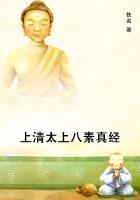"You know what I want you for, Dora," said Lady Earle, kindly.
"My son has told us of the acquaintance between you. I am come to say it must cease. I do not wish to hurt or wound you. Your own sense must tell you that you can never be received by Lord Earle and myself as our daughter. We will not speak of your inferiority in birth and position. You are not my son's equal in refinement or education; he would soon discover that, and tire of you."
Dora spoke no word, the tears falling from her bright eyes; this time there was no young lover to kiss them away. She made no reply and when Lady Earle sent for her father, Dora ran away; she would hear no more.
"I know nothing of it, my lady," said the worthy lodge keeper, who was even more surprised than his master had been. "Young Ralph Holt wants to marry my daughter, and I have said that she shall be his wife. I never dreamed that she knew the young master; she has not mentioned his name."
Lady Earle's diplomacy succeeded beyond her most sanguine expectations. Stephen Thorne and his wife, although rather dazzled by the fact that their daughter had captivated the future Lord Earlescourt, let common sense and reason prevail, and saw the disparity and misery such a marriage would cause. They promised to be gentle and kind to Dora, not to scold or reproach her, and to allow some little time to elapse before urging Ralph Holt's claims.
When Lady Earle rose, she placed a twenty-pound banknote in the hands of Stephen Thorne, saying:
"You are sending Dora to Eastham; that will cover the expenses."
"I could not do that, my lady," said Stephen, refusing to take the money. "I can not sell poor Dora's love."
Then Lady Earle held out her delicate white hand, and the man bowed low over it. Before the sun set that evening, Stephen Thorne had taken Dora to Eastham, where she was to remain until Ronald had gone abroad.
For a few days it seemed as though the storm had blown over.
There was one angry interview between father and son, when Ronald declared that sending Dora away was a breach of faith, and that he would find her out and marry her how and when he could. Lord Earle thought his words were but the wild folly of a boy deprived of a much-desired toy. He did not give them serious heed.
The story of Earlescourt might have been different, had not Ronald, while still amazed and irritated by his father's cool contempt, encountered Ralph Holt. They met at the gate leading from the fields to the high road; it was closed between them, and neither could make way.
"I have a little account to settle with you, my young lordling," said Ralph, angrily. "Doves never mate with eagles; if you want to marry, choose one of your own class, and leave Dora Thorne to me."
"Dora Thorne is mine," said Ronald, haughtily.
"She will never be," was the quick reply. "See, young master, I have loved Dora since she was a--a pretty, bright-eyed child.
Her father lived near my father's farm then. I have cared for her all my life--I do not know that I have ever looked twice at another woman's face. Do not step in between me and my love.
The world is wide, and you can choose where you will--do not rob me of Dora Thorne."
There was a mournful dignity in the man's face that touched Ronald.
"I am sorry for you," he said, "if you love Dora; for she will be my wife."
"Never!" cried Ralph. "Since you will not listen to fair words, I defy you. I will go to Eastham and never leave Dora again until she will be my own."
High, angry words passed between them, but Ralph in his passion had told the secret Ronald had longed to know--Dora was at Eastham.
It was a sad story and yet no rare one. Love and jealousy robbed the boy of his better sense; duty and honor were forgotten.
Under pretense of visiting one of his college friends, Ronald went to Eastham. Lord and Lady Earle saw him depart without any apprehension; they never suspected that he knew where Dora was.
It was a sad story, and bitter sorrow came from it. Word by word it can not be written, but when the heir of Earlescourt saw Dora again, her artless delight, her pretty joy and sorrow mingled, her fear and dislike of Ralph, her love for himself drove all thought of duty and honor from his mind. He prayed her to become his wife secretly. He had said that when once they were married his father would forgive them, and all would be well. He believed what he said; Dora had no will but his. She forgot all Lady Earle's warnings; she remembered only Ronald and his love.
So they were married in the quiet parish church of Helsmeer, twenty miles from Eastham, and no human being either knew or guessed their secret.
There was no excuse, no palliation for an act that was undutiful, dishonorable, and deceitful--there was nothing to plead for him, save that he was young, and had never known a wish refused.
They were married. Dora Thorne became Dora Earle. Ronald parted from his pretty wife immediately. He arranged all his plans with what he considered consummate wisdom. He was to return home, and try by every argument in his power to soften his father and win his consent. If he still refused, then time would show him the best course. Come what might, Dora was his; nothing on earth could part them. He cared for very little else. Even if the very worst came, and his father sent him from home, it would only be for a time, and there was Dora to comfort him.
He returned to Earlescourt, and though his eyes were never raised in clear, true honesty to his father's face, Lord Earle saw that his son looked happy, and believed the cloud had passed away.
Dora was to remain at Eastham until she heard from him. He could not write to her, nor could she send one line to him; but he promised and believed that very soon he should take her in all honor to Earlescourt.















